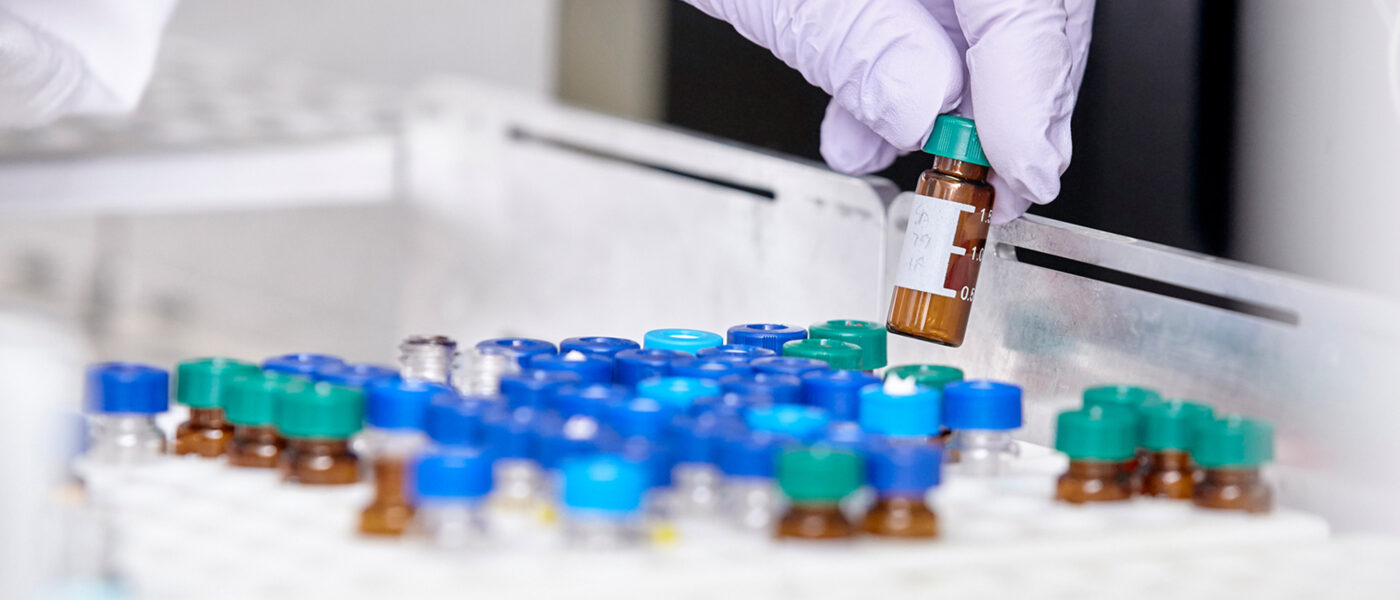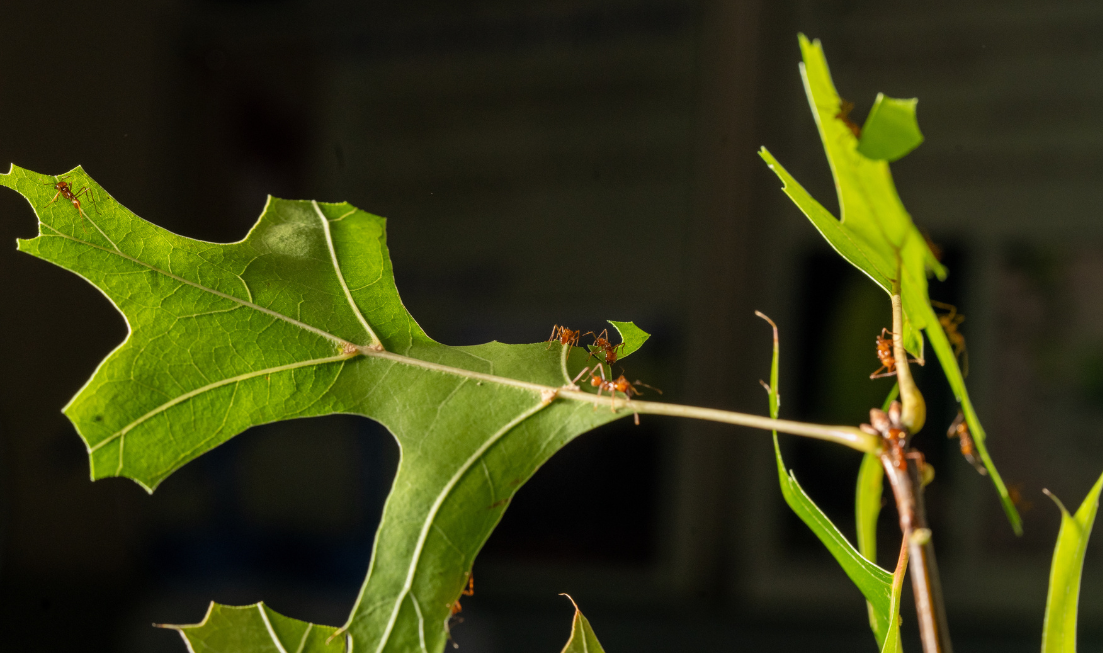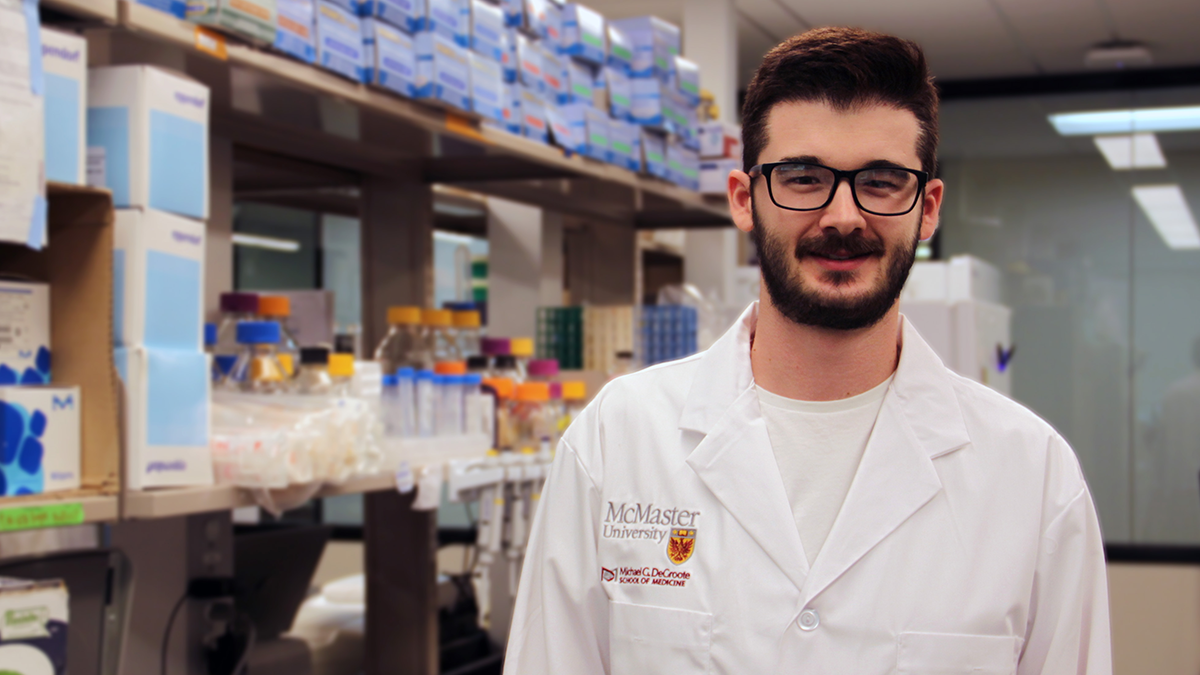IIDR Announces Funding for Collaborative Projects

The Michael G. DeGroote Institute for Infectious Disease Research (IIDR) continues to demonstrate, through its Research Funding Proposal initiative, a commitment to fostering scientific collaboration among its members.
Gerry Wright, scientific director of the IIDR, says funding collaborative research provides members with the opportunity to make connections that otherwise would not have been possible, adding: “It’s also a great way to amplify the impact of the work we do here.”
The IIDR Research Funding Proposal initiative supports a limited number of new team projects to generate preliminary data, and enables members to work collaboratively and creatively towards additional project funding.
Following an external review of submitted research proposals, the IIDR is pleased to announce the names of the recipients of this year’s IIDR Research Funding Proposal initiative. They are: Dr. Eric Brown, Dr. Brian Coombes, Dr. Karen Mossman, Dr. Matthew Miller, Dr. Mark Loeb, Dr. Dawn Bowdish and Dr. Michael Surette.
Recipients will be presenting their project idea to the IIDR’s Scientific Advisory Board on October 27, 2015.
Project One
Determining the role of Senataxin as a restriction factor during DNA virus infections
Investigators: Dr. Matthew Miller & Dr. Karen Mossman
Funding received: $45,000
Project description:
This project marks the first collaboration between the Miller and Mossman laboratories. Dr. Miller and Dr. Mossman propose to elucidate the mechanism(s) through which SETX – a protein implicated in childhood neurodegenerative diseases – restricts DNA virus infection by determining its roles in viral gene expression, viral DNA replication, and the antiviral signaling pathways stimulated by DNA virus infection. They are using a neurotropic virus model, since infections are thought to be a possible environmental trigger for this group of diseases.
“The support provided by the IIDR will allow the Miller and Mossman labs to combine their expertise in molecular virology and immunology to push this emerging field forward and gather a strong body of preliminary data that will serve as a foundation for diverse future funding and advancements that will improve the lives of patients suffering from these diseases.” – Dr. Matthew Miller
Project Two
Murine models of typical, atypical and “culture negative” pneumonias
Investigators: Dr. Dawn Bowdish & Dr. Michael Surette
Funding received: $45,000
Project description:
The Bowdish and Surette laboratories have worked extensively together in the past. However, this project marks a new direction that complements ongoing studies with clinical collaborators. Dr. Bowdish and Dr. Surette propose to establish valuable murine models of “culture negative” pneumonia, which account for up to 50% of pneumonia. Culture negative means they are not used by the expected respiratory pathogens. This study will lead to a better understanding of airway infections.
“This funding will allow us to generate novel, clinically relevant mouse models of pneumonia (e.g. polymicrobial or unconventional pathogens). This will be the first step to designing better diagnostics and treatments for the vast majority of pneumonias that are not caused by a conventional pathogen.” – Dr. Dawn Bowdish
Project Three
Comprehensive investigation of nutrient stress targets in a murine infection model
Investigators: Dr. Eric Brown & Dr. Brian Coombes
Funding received: $45,000
Project description:
Dr. Brown and Dr. Coombes propose to broaden the target base for new antibiotic drug discovery. They will be taking a novel and systematic approach to further our collective understanding of essential auxotrophies during systemic infection.
“These funds will position us to expand and industrialize our search for novel compounds that act to block the growth of bacteria under nutrient stress.” – Dr. Eric Brown
Project Four
Pilot study for dengue vaccine cluster randomized controlled trial
Investigator: Dr. Mark Loeb
Funding received: $45,000
Project description:
Dr. Loeb proposes to test whether vaccinating children and adolescents from the ages of two to 14 years in villages in Vietnam with a recombinant, live, attenuated, tetravalent dengue vaccine (CYD-TDV) can significantly reduce laboratory-confirmed dengue in non-vaccinated children and adults, as well as in the entire community, compared to saline placebo. If this pilot study leads to a large scale RCT, collaboration will extend to personnel in genomics and immunology.
“Understanding if the dengue vaccine leads to herd immunity is a critical public health issue. IIDR funding will allow us to lay the groundwork for a successful trial, which is critical.” – Dr. Mark Loeb
NewsRelated News
News Listing

Faculty of Health Sciences ➚
McMaster researchers get federal funding to study emerging bird flu threat
News
1 day ago

Brighter World ➚
Putting the ‘ant’ in antibiotic discovery: How insects could be the key to fighting superbugs
News
2 days ago

November 6, 2024

